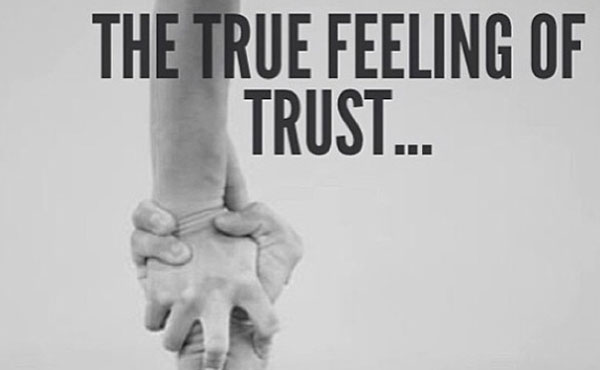By Cory Collins
Ryan Ward and Kiley Boynton stand on a mat in Maia, Portugal. Then it happens –something stunning, something worthy of gold. The routine, both live and within its YouTube replicate, tests your limits. It’s just shy of three minutes, and you wonder if it’s the longest you’ve ever held your breath.
And here’s what you see.
At 30 seconds, you see Boynton’s body balance on Ward’s fingertips, their collective limbs as steady as the drum beat. One minute in, you see reflections –two bodies in full control, synchronized, a swan atop a lake that holds her afloat. Forty-five seconds later, you are seeing what appears to be immense, but effortless strength, spines that bend but never break, two human figures molding themselves into art. And by the end, when you exhale and the music stops, you see two real-life people walk away. You realize that the only special effect was the song piped through the speakers. By then, you know what you see: champions.
In the story of Kiley Boynton and Ryan Ward, it’s what you don’t see that provides them balance,that makes them strong.
Boynton is awake long before the stereotypical teen is smacking the snooze button. She’s up at 6 a.m., in the gym by 6:30. She trains before heading straight to a nearby public high school, where the last bell of the afternoon isn’t a release, but a reminder: the day has just begun. For a few hours, she’ll finish homework in her Riverside home before going back to Realis Gymnastics Academy, where three to four more hours of training await. The 15-year-old will repeat the process the next morning.
“I think it takes a really special type of person to be a gymnast and to be as dedicated as elite-level gymnasts need to be,” said Ward. “With Kiley, she just strives for what she wants. In a gymnast, that’s really hard to find, because it requires so much hard work and determination.”
“It’s rare that you can find someone at her age that can handle the training time, the dedication needed, the work that you have to put into it,” he added.
Takes one to know one.
Ward has lived as many years as there are hours in the day and seemingly hasn’t missed a moment. At 5:50 a.m., he rises for the day, and like Kiley, is on the mat by 6:30. After a couple of hours, he works a full shift as district manager for a cell phone company. Then, he clocks out to clock in as a coach, leading young acrobatic gymnasts for two hours before he trains with Kiley into the evening and learns his own moves.
Boynton credits his work ethic as the reason he is stronger than fellow acrobatic gymnasts.

But Ward credits this crazy routine, this repetition. What might seem hard proves necessary.
“It takes a long time,” he said. “Kiley and I, we’ve been in this sport for years and years and years. We train every day. We train two times a day. It really takes that much training, that much building of strength and flexibility over that amount of time to gain ability to hold positions and do skills like that.”
Few witness those countless hours of sacrifice and practice. They simply see the three minutes that warrant a score.
***
You don’t see the before and after, the nerves and the relief, the relief and the nerves.
There’s a moment before the magic starts when all is not under control. It’s brief, those seconds spent waiting in the wings. “When I walk out on the floor,” Ward admitted,” I am a little nervous.”
But the youngest assures: “Right before we go on,” Boynton said, “I’m like, ‘We’ve got this.’” Then the music starts. And even then, you don’t see the routine as they see it.
“As soon as I step out on to the floor, pretty much everything disappears,” said Ward. “So even if people are cheering, if people are rooting us on, I don’t hear it. It’s just Kiley and me on the floor.”
Boynton maintains that same focus. “It just becomes about making every skill,” she said.
The routine ends as suddenly as it began. At first, Ward said, the resulting emotion is simply “relief.” But then the nerves return, because, for the first time, Ryan and Kiley are not in control.
“There’s another nervous aspect of it,” Ward said. “What are our scores? Did we get the gold medal?”
“It takes a while for the scores to go through,” added Boynton. “And you’re like, ‘Oh my God, did we do something different? Did we do something wrong?’”
Despite the agonizing wait, Boynton and Ward obviously did something right in Portugal. And what goes unseen is that foreign feeling. For two athletes notorious for their composure, their ability to hit every skill with precision, there is no choreography that decides what to do when dreams come true and scores fall your way.
“It’s like your mind is going through a bunch of emotions, and you can’t figure out what you want to do,” said Boynton, who was searching for the right words.
“You can’t explain it,” Ward said, filling the silence. “You have so many emotions all at one time. It’s complete happiness. You want to jump up and down, and you want to cry, and you want to scream and sit down and pray, all at the same time. It’s a complete rush of emotion.”
You don’t see that. These two young gymnasts are trained to hide internal emotions and “imbalance.”
You don’t see what makes that possible.
You don’t see the way their personalities impact their performances: Kiley seemingly shy but truly daring; Ryan forceful, explosive, but also, a system of support.
You don’t see the way their coach, Youri Vorobyev, instills the importance not just of skill, but also laughter, of finding fun within frenetic lives.
And you don’t see the most essential part of each performance.
What moving bodies and moving pictures cannot capture comes alive in a still image –in a young woman’s Instagram post and two united hands.
“The true feeling of trust,” Ward said, considering the photo of his and Boynton’s hands from her Instagram account. “For me, that’s what our sport and our partnership is about. In every sense, not just skills, not just what we do on the floor –it’s about trusting each other. “Without that type of trust, there is no way that you can succeed,” he added. “That trust is a key part of what makes a true partnership.”
It’s the key to Boynton literally placing her life in her partner’s hands.
“I know he’ll catch me,” she said. “I know he has my back, that I won’t fall. Because I haven’t fallen. I think it’s just trust.”
Added Ward, “It’s about being very in tune with our bodies, and in tune with each other.”
That trust, that chemistry, started in childhood and ended in serendipity – proof that you never see a routine’s true beginning.
These California kids from Riverside crossed paths at Realis when Boynton was 4 years old, and Ward, 11. They grew as gymnasts and young kids, side by side. They became family.
“We’re like brother and sister,” said Boynton.
“It’s definitely a brother and sister kind of relationship,” Ward agreed. “Her mom has seen me grow up. My mom has seen Kiley grow up. Our whole families have bonded together because we’ve grown up with each other and been there for each other for so long.”
But the lifelong friends might never have been partners if not for the coincidence that brought them closer than ever before.
Before the fall of 2012, their gap in age also meant a gap in competition. Their skills existed in separate spheres. Ward was a senior gymnast; Boynton a junior. But when each of their respective partners retired and it came time to fill the void, those two sets of hands united.
“With all of the time we had together, it just seemed to be the best option for us,” Ward said of the match. In September 2012, they joined forces.
You see the results: the medals, the routines, the collision of strength and grace.
But here’s what you don’t see: the true feeling of trust – the friends that travel together, that go to the beach, that play cards on the plane, that laugh, joke, and do acrobatics in the airport. You don’t see the partners that (after lengthy deliberation) decide the movie about their careers should be titled, The United Two.
You don’t see what they already see: how that movie ends.
As summer draws near, the best acrobatic gymnasts will coalesce at the 2014 World Championships in a facility just outside of Paris. And Ward and Boynton trust one truth nearly as much as they trust each other: this is competition they could win.
“It will be a surreal moment for me,” said Ward. “I’ve been in this sport for a long time. My goal has always been to go to World Championships, to take home a gold medal, to be the best in my sport…
“So when it happens, and yes, I say when.When it does happen, it’s going to be everything I’ve been working my entire life to complete. What my dream is will become a reality.”
For Boynton, gold represents a dream, and it represents redemption.
“I’ve been to Worlds two times, and I obviously didn’t do as well as I could have,” she said. “But when we get a medal, it will be crazy. I won’t know what to do with myself because I’ve got a gold medal, and it’s a dream come true.”
For both gymnasts, that’s the payoff. For all that goes unseen, this is their chance to shine in the spotlight.
“What makes it worth the time is going to international competitions and practically taking over, winning the gold, and bringing it home to show everyone,” Boynton said.
In Paris, they plan to show moves the world hasn’t seen before.
“No one in the world does the skills that Kiley and I do,” Ward claimed. “It sounds kind of cocky, but we train in the gym to go to competitions with the intention that when we walk into the gym for warm-up and we do our skills for competition, that the other athletes get a little frightened by what they see us do on the floor.”
Their belief is if is what their opponents can see that scares them, what they can’t see will defeat them: the trust.
“All we have to do,” Ward said, “is get on the floor and show the judges what we already know we can do.”
In the mere minutes that decide the fate of Ryan Ward and Kiley Boynton at the World Championships, you might not see everything that brought them there.
What you will see is the United Two moving as one, the true feeling of trust hidden between strong and steady hands.




